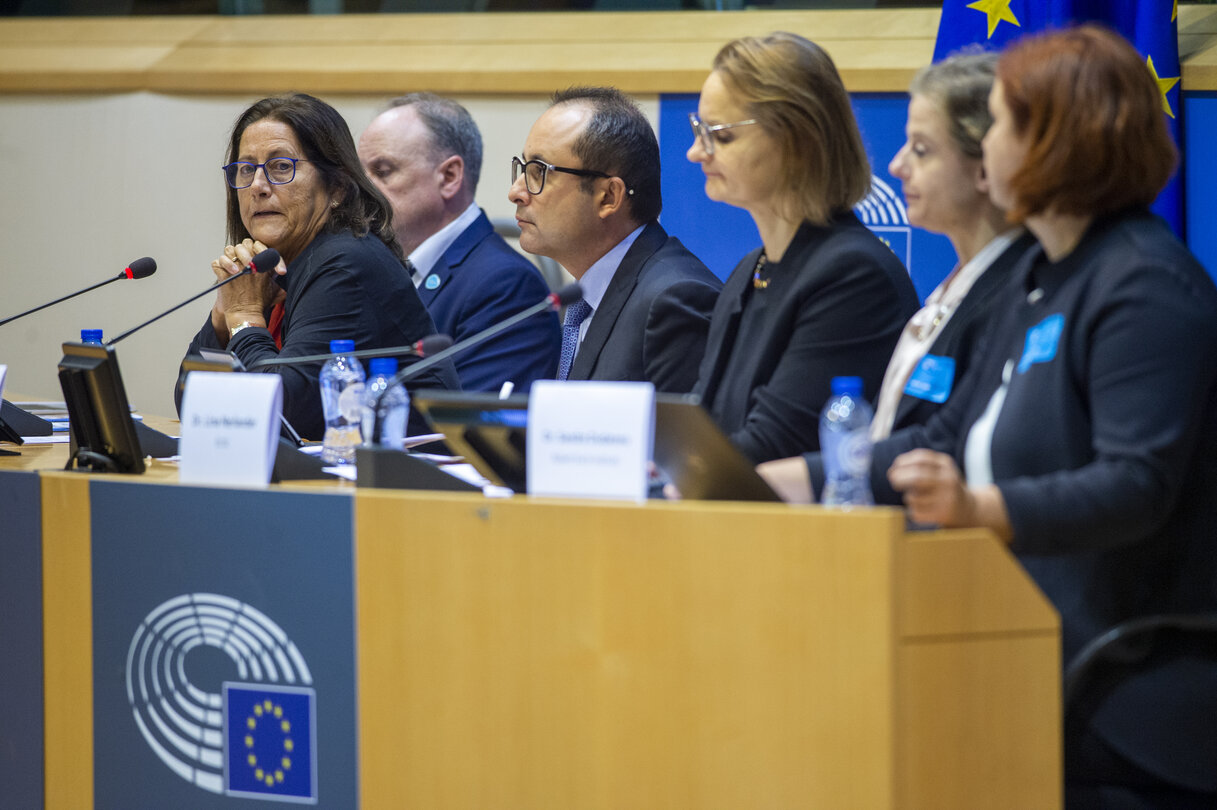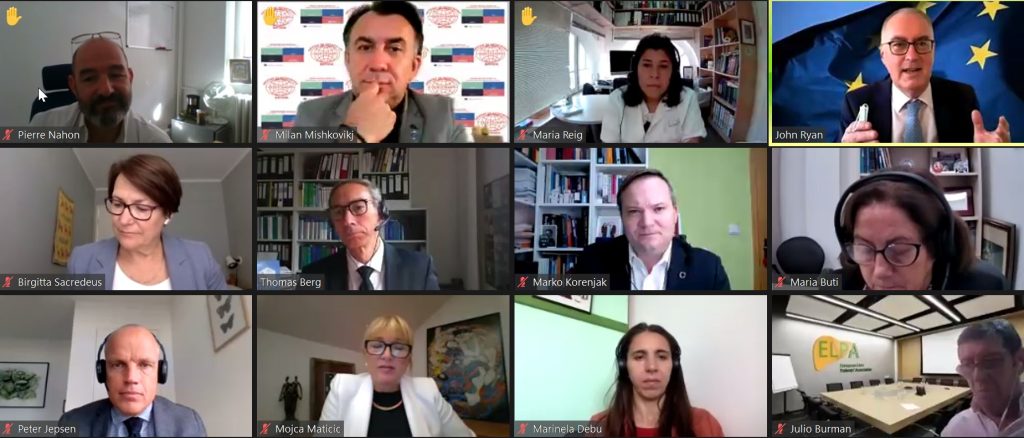The final push to eliminate viral hepatitis – how can the EU lead the successful achievement of this global public health priority?
On 25 October 2022, the MEP Friends of the Liver Group hosted the event “The final push to eliminate viral hepatitis – how can the EU lead the successful achievement of this global public health priority?”, with support from EASL as Secretariat of the Group, and the ACHIEVE Coalition.
This event saw hepatology and policy experts reinforce the message that viral hepatitis is a preventable disease that benefits greatly from early detection and screening. Several panellists discussed the need for improved access to pan-European health data in order for countries to learn from one another and better respond to this public health threat at the policy level. The key takeaway from this panel discussion was the importance of different stakeholders speaking with one voice while working towards elimination. In keeping with the WHO 2030 Goal of Viral Hepatitis Elimination, panellists and audience members alike called for the explicit inclusion of this goal in the New EU Global Health Strategy.

MEP Friends of the Liver Call to Action ‘The EU must lead on viral hepatitis elimination by 2030’
The discussion revealed that the European Commission is on the right path with the recognition of viral hepatitis B and C in Europe’s Beating Cancer Plan, as well as the funding provided to projects aimed also at eliminating viral hepatitis through the first annual work programme of EU4Health. However, it is equally clear that a lot must and can be done to ensure that the EU collectively meets the WHO’s 2030 elimination deadline and also makes a significant contribution to ensure that viral hepatitis be eliminated in the EU neighbourhood and globally, supporting low-income countries.
To keep the momentum going, the two co-chairs of the EASL Friends of the Liver Group, MEP Engerer and MEP Fiocchi, together with the group members, MEP Busoi, MEP Kovatchev, and MEP Fitzerald supported a call with the following concrete actions:
Webinar presenting the Call to Action
On 25 April 2023, with the support of the ACHIEVE Coalition, EASL organised a webinar to present the Call to Action. The event was hosted on the European Commission’s Health Policy Platform.
Beating liver cancer in Europe – the empowerment of prevention and early detection
On 22 October 2021, EASL held this event under the patronage of the Slovenian presidency of the Council of the European Union and jointly organised it with the European Liver Patients’ Association (ELPA), a member of our Patient Synergies network of umbrella patient organisations. Registered participants numbered 250.
The goals of holding this exchange included: outlining and emphasising the most urgently needed actions to tackle the multifaceted issue of liver cancer and raising awareness about the feasible opportunities to significantly reduce this health burden by better addressing risk factors. The most crucial risk factors being viral hepatitis B and C, alcohol us and, or fatty liver disease.
High-level policymakers showcased their views on how policy can be leveraged to mitigate liver cancer. Distinguished speakers include Igor Zorčič, President of the Slovenian Parliament, who stated that Slovenia’s work around targeted screening for liver cancer sets a good example for the EU. Janez Poklukar, Slovenian Minister of Health, underlined the importance scientific evidence proving that goals for cancer screening in Europe should be raised. John F. Ryan, Director of Public Health Country Knowledge and Crisis Management, DG SANTE, provided further key insights on the European Commission’s actions to tackle cancer in Europe.
Key conclusions: rolling out screening and implementing programmes
In our summary report, EASL drew these two key conclusions:
- Speakers emphasised that the updated Council Recommendation must include liver cancer screening, in line with the World Health Organization’s broader recommendations for cancer screening programmes in Europe. Liver cancer is not only a grave public health concern, but well suited to screening, as a preventative measure. Both suitable, affordable screening tests and effective treatment are already available, so public health outcomes will certainly improve when diagnosis happens early. Suitable programmes to carry this out are urgently needed.
- Programmes to monitor patients can increase early detection of liver cancer and targeted surveillance programmes of at-risk patients must be implemented systematically. Education programmes of both patients and their healthcare providers will be key to successful implementation.


